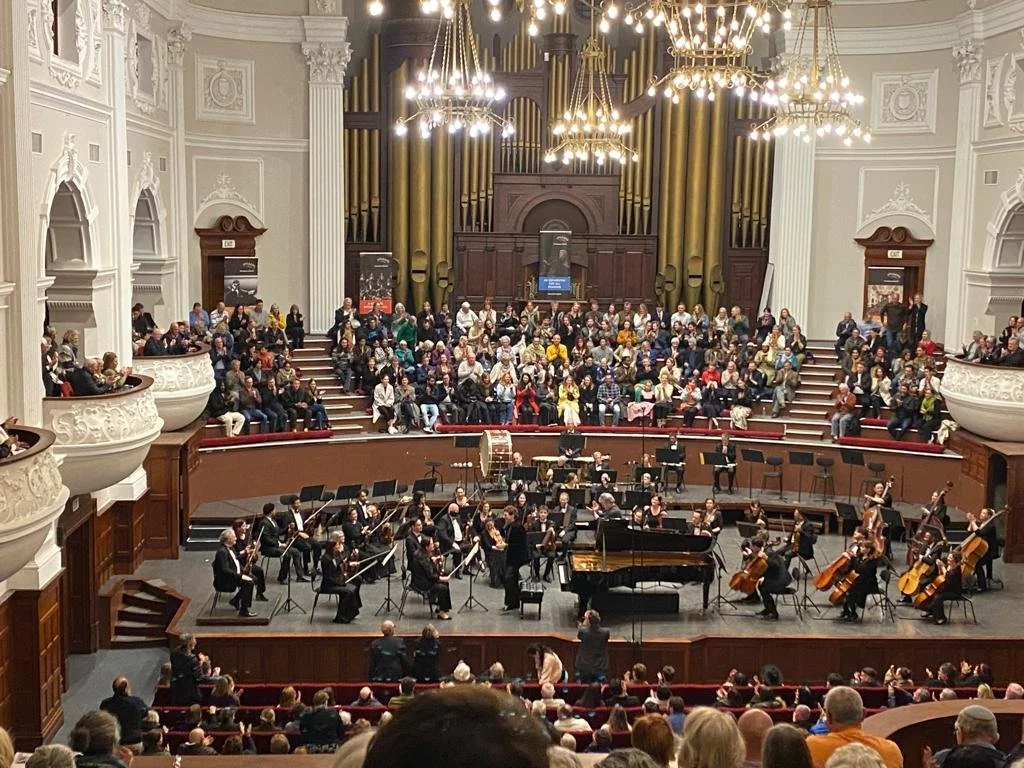Review: Cape Town Philharmonic Orchestra
Cape Town musician, lecturer and critic Albert Combrink reviews Gillham’s performance with the CPO (14th September)
Original post here: https://www.facebook.com/albert.c.combrink/posts/10160172554692408
Australian pianist Jayson Gillham played an exceptionally beautiful Mozart Piano Concerto #21 K467 with the CPO last night. The transparency, the extremely natural attention to phrasing and musical detail, and his ability to balance graduations of sound, was really special. I am hoping he records a few discs of Mozart, if not all the concertos. I would buy it in a flash. A major pianist of whom to take note.
Gillham and Gueller made a good case for the work: by these later concertos, Mozart was already beefing up the role of the orchestra, from simple accompaniment, to fully fledged co-protagonist. The concerto starts as if it ought to be a light comic opera, but Mozart soon starts messing with the key structures and sonata-form expectations, to emerge as, well, mature Mozart in absolute control of his material.
Playing Mozart well, in public, always has a lower “Wow” factor than, for example, the big Russian warhorses. But this perfectly crafted gem thrilled the audience. Scarlatti’s Sonata in C major K.159 revealed similarly refined pianism and old-school finesse aligned with a curiosity about exploring alternative inner lines.
The bubbles continued in the 2nd half. A gorgeous old chestnut, the “Nocturne” from “Midsummernight’s dream” was a comforting treat, the horn solo magnificently played by Shanon Thebus. He simply doesn’t put a foot wrong whenever he has a solo.
Gueller then launched - from memory - into a sparkling “Italian Symphony”, by a the 21 year old Felix Mendelssohn. Of the trip through Italy which inspired the work, Felix wrote: “It has such a festive air that I felt as if everywhere I were a young prince making his entry.” And a festive air it was.
On the opposite spectrum, the programme opened with “the Swan of Tuonela”, a tone poem by Sibelius. Tuonela is the land of death, the Hell of Finnish mythology. At this moment in the story, the hero Lemminkäinen attempts to slay the swan and gain access to the underworld. Gueller chose to focus on the gliding beauty of the swan, a sweet voiced Cor Anglais (beautifully played by Carin Bam) drifting over a bed of strings divided into no less than 13 parts.
The bass drums were more present than usual, bringing out a different atmosphere. Some might have preferred the swan to glide a bit slower - the triplets can be melodic at a slower pace rather than an ornament - and come from a bit further away, just a tad more in darkness than the glowing sunrise chosen by Gueller. A wise choice perhaps, as an Urlicht moment is a lot to ask from an orchestra at the opening of a concert.
And a lot is being asked of this orchestra. They are playing their lips and fingers to the bone in Tosca on every other night of this week, and it seems to defy basic biology to imagine they can still learn and perform an entirely new and tricky programme such as this, to this level of performance, at the same time.

